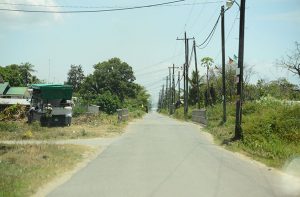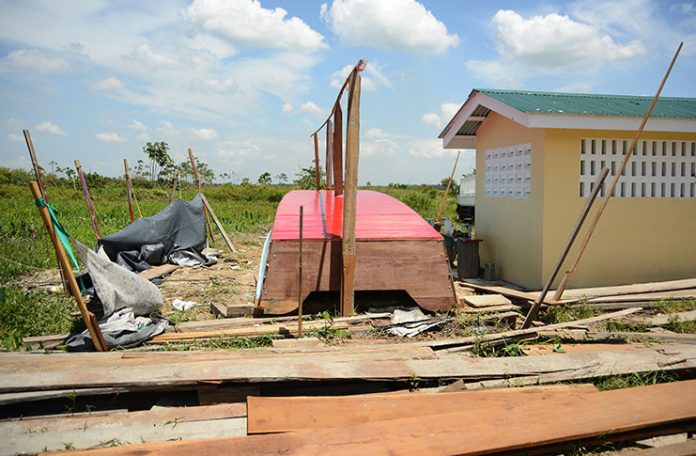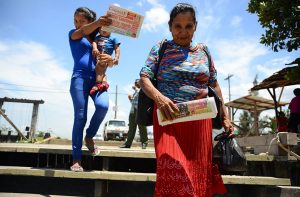A journey from Parika to Hubu
WHILE most persons are familiar with Parika, you may not know about the various small villages that fall within this large East Bank Essequibo community. This week, we venture into the communities within Parika and bring you stories on the way of life of the residents there. Stories by M. Margaret Burke and Shirley Thomas.
PARIKA is located approximately 19 miles from Vreed-en-Hoop. It is considered to be somewhat the parent village for many of the other small villages along the way.

Parika is seen as the port township and has been evolving into such with the mammoth economic activities that continue to see expansion within this central location. It is where hundreds of sellers and buyers from the many villages meet to transact business. These include some from islands in the Essequibo River, who seek to bring out their farming produce and other items for wholesale and retail sale at the Parika market.
HUBU, PARIKA
Hubu, also pronounced “Hoo-boo,” can be found some five miles up from Parika. Similar to many of the other villages along the way, Hubu is a very quiet place during most of the weekdays; on Fridays and Sundays however, the village comes alive with lots of activities, especially in relation to the marketplace.
Hubu has a landing that links other villages, not only along the stretch of road to Parika, but across the river. There it forms a major hub for river transport to many other islands and villages, such as Fort Island, Aliki, Morishi, Bonasika and other areas. While some people travel to Parika by using speed boats or the bigger ferry, others use speed boats to Hubu, then take the road to their other destinations.
Farming has been the main economic activity for a large percentage of the people of Hubu for many years. However, there are many people with well-established businesses such as sawmills, grocery shops and hardware stores, supermarkets, block-making, taxi and other transportation services, a modern three-storey car parking facility, a fuel station and other businesses within the community. There are also many public servants from Hubu who cover every scope of work in areas of public service.

“In this area we do not have ‘limers,’ even though we sometimes sit outdoors in the open, by the landing, by a shop or sometimes just in front of a friend’s house; this is mostly late in the afternoons after a hard day’s work,” a group of young men told the Pepperpot Magazine.
Indeed, the Pepperpot Magazine discovered on the ‘Journey to Hubu’ there is that quietude, graced by some smiling and appreciative faces. Though spread with some amount of activities on the way, the people from this relatively small community live a very relaxed lifestyle with the essential services of electricity, potable water, telephones, an internet hub and a good family-type life, where they share in the good and sometimes not-so-good times.
IMPROVED FACILITIES
Starting from the front road at Parika, the road that took the team into Hubu had a smooth drive. While some parts seemed narrow, causing one vehicle to have to await the passing of another, moving through each village was undisturbed by potholes and other hindrances. Michael Smith and Sam Ruben told the Pepperpot Magazine that many of the roads and bridges that adjoin villages and most of the culverts were renovated or built over in recent times.
The bridge at Hubu, sandwiched by Unity and Saint Lawrence or Big Sands, received renovation works, as well as the landing that facilitates a lot of transportation activities to and from Hubu by persons living on neighbouring islands and villages.
In the area of education, while there are many teachers who come from the villages along the journey, there are a number of schools to facilitate at least some of the teachers; others teach outside of the community. In Parika, there is a nursery, primary and secondary school; while in some communities there is just nursery or primary. The Pepperpot Magazine was told that the children within the communities graduate to the school for which they are qualified after sitting the Secondary School Entrance Examination (SSEE), and Hubu is one such community.

The religious buildings in these communities are also very prominent in the villages. These include the many churches, mosques and mandirs or temples with shrines and murtis.
In what appears to be the coziness of the communities along the journey, are the recreational facilities, which also add to the laissez-faire atmosphere the villagers seem to enjoy. There is also the Stanley Hing recreational park and other smaller playfields within the community.




